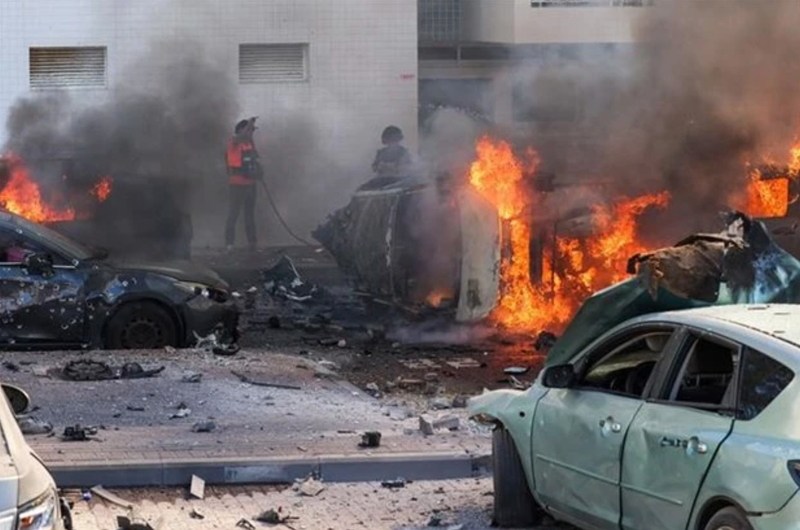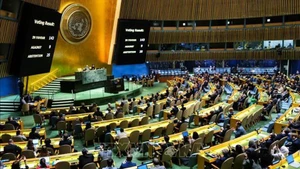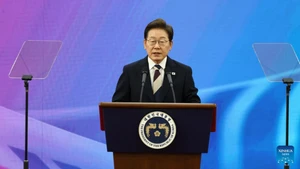If both sides do not restrain themselves, escalating fighting may push the region into a new spiral of violence. The international community calls on all sides to immediately cease fire and find a comprehensive solution to the persistent conflict between Israel and Palestine.
On October 7, the conflict escalated violently after Hamas fired thousands of rockets into Israeli towns adjacent to the Gaza Strip, leading to retaliatory attacks from Israel.
To date, the conflict has killed more than 700 Israelis, while the Palestinian side also announced the number of human casualties in the Gaza Strip reaching 413, including 78 children and 41 women and more than 2,300 injured people.
Notably, there has been information about citizens of some Western countries in Israel dying as a result of the conflict. Israel officially announced that the country is “in a state of war” and it will carry out several military operations in Gaza. The Israeli army confirmed that it had attacked 500 locations controlled by the Hamas movement and the Islamic Jihad branch, in the Gaza Strip.
Accordingly, airstrikes and shelling targeted many high-rise buildings, including residential and command facilities of senior members of Hamas.
Faced with escalating conflict developments in Israel, the US has made moves to fulfil Washington’s security commitment to its important ally in the Middle East.
US Secretary of Defence Lloyd Austin announced that he had ordered the USS Gerald R. Ford aircraft carrier strike group to move to the eastern Mediterranean, closer to Israel. This force includes an aircraft carrier, a guided-missile cruiser and four guided-missile destroyers.
Secretary Austin also said that the US has taken steps to augment the US Air Force F-35, F-15, F-16 and A-10 fighter aircraft squadrons in the region. The US will also provide munitions to Israel.
The White House said President Joe Biden informed Israeli Prime Minister Benjamin Netanyahu about the “intensive diplomatic engagement” that the US is making, to support Israel.
Meanwhile, the Hamas armed movement issued a statement criticising the US plan’s increasing military aid to Israel, as being against the Palestinians. Hamas spokesman Hazem Qasem said that a ceasefire agreement with Israel is currently unfeasible because the Israeli army is escalating the war.
The conflict between Hamas and Israel stems from persistent hatred between Israelis and Palestinians and unresolved issues in the conflict between the two sides, which has lasted for decades.
When conflicts expand, civilians suffer the consequences. For Israel, this is one of the bloodiest conflicts in its history. Regarding the Gaza Strip, the extremely difficult life of Palestinians here is seriously threatened. The tense situation also threatens to lead to a serious deterioration in security and humanitarian conditions, in the Palestinian territories.
The World Food Programme (WFP) expressed deep concern about the impact of the conflict between Israel and Hamas, on people in Gaza who are struggling to obtain essential food supplies, with food distribution networks disrupted and food production severely hampered by the fighting.
Faced with the dangerous military escalation in Gaza, UN Middle East peace envoy Tor Wennesland called the situation “on the brink of danger”, and urged all parties to exercise maximum restraint and protect civilians. Representative of the UN High Commissioner for Human Rights Volker Tuerk emphasised, that “civilians must never be the target of attack”.
Tuerk called for an immediate stop to violent actions, asking all parties and important countries in the region to help reduce tensions, to avoid further bloodshed. The United Nations Security Council also held an emergency meeting about developments in Israel.
Contacts among countries inside and outside the region are underway to discuss urgent action to prevent conflict from elevating between Hamas and Israel, helping the region avoid the consequences of a spiral of violence. The Arab League (AL) and countries in the region are promoting diplomatic efforts to ease tensions and end conflicts.
All countries affirmed their stance in support of the Palestinian people’s just struggle while emphasising the need to find a political solution that ensures all fair and legal rights of Palestine. Peace and stability cannot be achieved without a fair and comprehensive solution to the Palestinian issue based on the “two-state solution”.
















